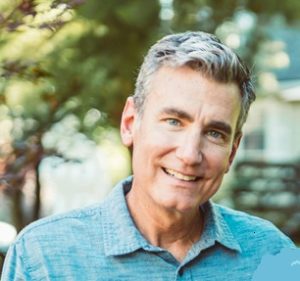1.1 Mein Alltag

Lektionsüberblick
The things you do daily should be among the things you feel most confident about when speaking German. Many conversations we have with friends, family, classmates, and even strangers are about what we have going now and what we have done. The “what you are doing now” part was covered in first year German and will be quickly reviewed here. The “what you have done” part will be the focus. In the end, you will be able to 1) talk about your daily routine and 2) talk about your daily routine yesterday.
1) Mein Alltag
Wie sieht dein Alltag aus? What do you do each day? Think about the words and phrases you already know on this topic. Then review some common daily tasks. Which ones do you do? Which ones are missing?
Wann stehst du auf? Wann gehst du an die Uni? Using the model sentences from the presentation, write down what order you do your every day tasks in. When you are done, look over the model again and check if your spelling and structures match with the model.
When you are done, record your daily tasks in your audio journal. Be sure to listen to your recording and rerecord, if you are not satisfied.
2) Mein Alltag – gestern
Was hast du gestern gemacht? What did you do yesterday? Did you do all of the same daily tasks from #1 yesterday?
Let’s see how Germans-speakers talk about gestern (yesterday) – gestern Morgen, gestern Mittag, gestern Abend.
Kleiner Hinweis
As you learn how to talk about things in the past, it is more important than ever to enter your German mindset – rather than thinking English thoughts and then translating them into German. Look at what the following sentences mean in translation:
| Ich bin aufgestanden. | = I got up. = I have gotten up. |
| Ich habe geduscht. | = I showered. = I have showered. |
| Ich habe gefrühstückt. | = I ate breakfast. = I have eaten breakfast. |
| Ich bin an die Uni gegangen. | = I went to campus. = I have gone to campus. |
As you can see, in English, we differentiate between using the 1-verb past tense (called the imperfect, e.g. I went) and the 2-verb past tense (called the present perfect, e.g. I have gone). In German, by contrast, all of the sentences use the 2-word past tense (Ich bin gegangen).
Another difference you may have noticed is that the first verb (called the auxiliary or helping verb) is not always haben in German, but in English it is always have. The grammatical explanation is that transitive verbs (=can take an object) take haben as the helping verb and intransitive verbs (= cannot take an object) take sein. Another way to think about it is this: Verbs that move someone/something thing from A to B will take sein. Since other verbs also take sein, the “simplest” way to remember which verbs take haben und which take sein is to learn both parts together. That means, when you are learning new sentences that allow you to talk about something in the past, work on memorizing the first and second verbs as a pair (Ich bin aufgestanden. Ich bin gegangen. — Ich habe geduscht. Ich habe gefrühstückt.)
A final difference worth noting is the location of the second verb (called the past participle). In English, the second verb immediately follows the first (I have gone to campus), but in German, the second verb comes at the end of the phrase (Ich bin an die Uni gegangen).
Getting the hang of whether you need haben or sein, when you are talking about something in the past, can take a lot of practice. So let’s practice some more by learning about how Herr Klein’s day went yesterday.
|
|
 |
Was hast du gestern gemacht? Wann bist du aufgestanden? Wann hast du zu Mittag gegessen? Using the model sentences from the presentations, write down what you did yesterday. When you are done, look over the model again and check if your spelling and structures match with the model.
Then record your description in your audio journal. Be sure to listen to your recording and rerecord, if you are not satisfied.
Jetzt kombinieren
In this lesson, you reviewed how to 1) talk about your daily routine and you learned how to 2) talk about your daily routine yesterday.
In this combination activity, you can either imagine a scenario, in which you are recording your actions in real-time throughout the day and then comparing them to yesterday, or you can actually do it. Just keep your written journal with you throughout the day and periodically write down a sentence in German about what you are doing. Then think about what that activity looked yesterday. For example,
Heute stehe ich um 7 Uhr auf. Gestern bin ich um 10 Uhr aufgestanden.
Ich esse heute um 12 Uhr zu Mittag. Gestern habe ich um 13 Uhr zu Mittag gegessen.
Heute lerne ich 3 Stunden in der Bibliothek. Gestern habe ich nicht in der Bibliothek gelernt. Ich habe nur zu Hause gelernt.
Whether you are writing down your activities in real-time or all in one setting, be sure to compare your spelling and structures with the vocabulary in this lesson. Once you are done, record your comparisons in your audio journal. Be sure to listen to your recording and rerecord, if you are not satisfied.

Media Attributions
- 2030-2040 ch banner reduced size
- Photo of Herr Klein adapted from Photo by RDNE Stock project: https://www.pexels.com/photo/shallow-focus-of-happy-family-8798733/

